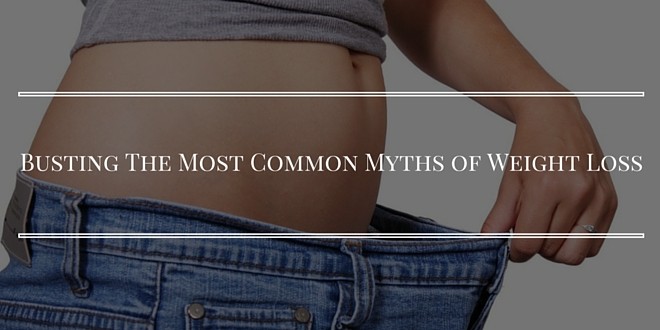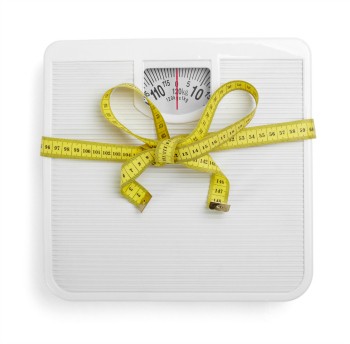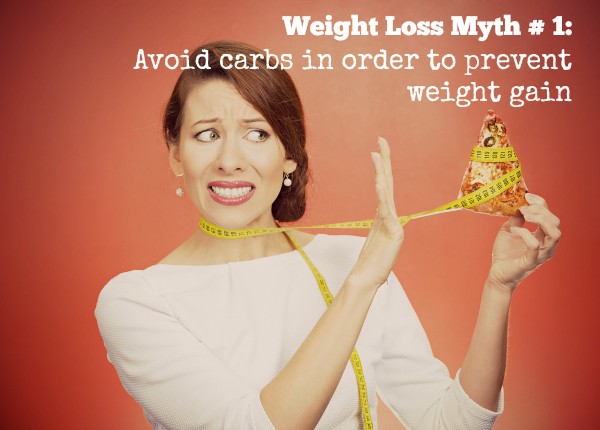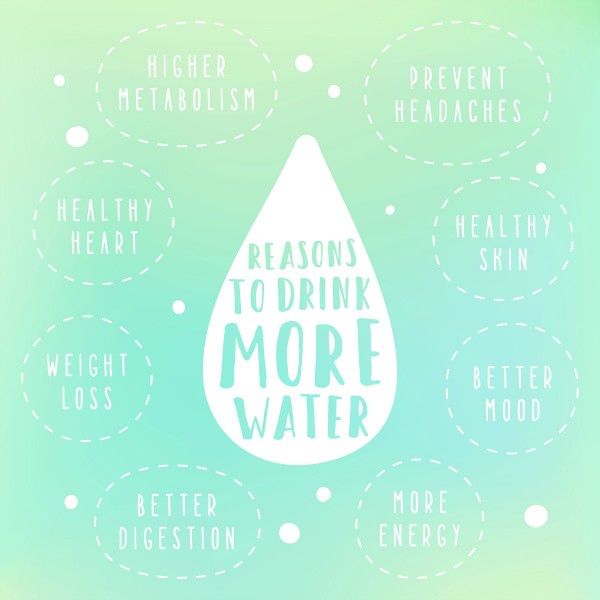Busting The Most Common Myths of Weight Loss

 In the course of trying to lose weight, you’ve probably heard a lot of advice from people about how to keep the excess weight at bay and what techniques can shed off pounds the fastest. Even if you hear some tips that seem to be logical and true, take everything that you hear with a grain of salt.
In the course of trying to lose weight, you’ve probably heard a lot of advice from people about how to keep the excess weight at bay and what techniques can shed off pounds the fastest. Even if you hear some tips that seem to be logical and true, take everything that you hear with a grain of salt.Sometimes, you may find yourself taking advice from people who have successfully lost weight, only to find out that their methods are either inapplicable to your body condition or outright wrong. In fact, you might be committing the crime of following weight loss myths that continue to circulate in social media and fitness websites.
In this article, we will discuss some of the most popular weight loss myths, and why they are absolutely false.
Myth # 1 : Avoid carbs to prevent weight gain
Carbohydrates have unfortunately earned a bad rep from diet-conscious (but ill-advised) people. By itself, carbs do not cause excess weight. In fact, carbohydrates are essential components of a balanced meal, because it provides energy.

According to the Mayo Clinic , “the Dietary Guidelines for Americans recommends that carbohydrates make up 45 to 65 percent of your total daily calories.” For an average calorie intake of 2,000 a day, the total amount of carbs per day is roughly 225-325 grams.
Myth # 2 : Food products that increase metabolism can speed up weight loss
The human body experiences a lot of metabolic processes on a daily basis, and it’s important that these things run properly. The food that we eat may have compounds that promote metabolism, but it doesn’t mean that you should eat foods that exclusively contain these components.
Besides, some food products that claim to boost metabolism may contain high sugar and caffeine, which can affect your weight loss progress.
The best advice that you should probably follow is based on universal truths, such as drinking water to gain its health benefits. Better yet, talk to a nutrition expert and discuss your weight management goals.
Myth # 3 : Starvation makes weight loss faster
[caption id="attachment_21826" align="alignleft" width="377"]
 8 Reasons to drink more water[/caption]
8 Reasons to drink more water[/caption]There is no scientific evidence that supports the theory of starvation to lose weight. Some people fall prey into the promise of crash diets and sudden fasting, but the National Health Service in the U.K. said that this causes a depletion of essential nutrients that the body needs. “Your body will be low on energy, and may cause you to crave high-fat and high-sugar foods,” the NHS said.
Myth # 4 : Snacks are harmful to your weight loss goals
Similar to Myth # 3, it’s not good to deprive the body of food. This is the same case when it comes to eating snacks, which some people need to get through the day. More than having a snack, it’s the kind of snack food that will decide your weight management plans.
You may choose to snack on fruits and nuts, or some of those healthy plant-based snacks. You also need to remove chips and sugar-rich snacks from your diet.
Myth # 5 : Engage in a rigorous exercise routine to see weight loss results immediately.
A good weight loss program usually runs for a long period, from a few months to years. What’s important is that you become more active than you used to, even if the change in lifestyle isn’t too drastic.
It’s a good idea to start small, to prepare your body for further increases in physical activity in the future. You may do a short walk around your neighborhood if it’s your first time to do so, or check with a fitness instructor to learn about the right exercise regimen for you.
[divider style="dashed" top="15" bottom="15"]
 Author Bio: Jon Navarro
Author Bio: Jon Navarro
Certified nutritionist and blogger Jon Navarro believes that living healthy is important in enjoying life. Helping people eat right and take good care of their body and spirit is what Jon is very passionate about, as clear in his blog http://www.healthexcellence.net.
[divider style="dashed" top="15" bottom="15"]




































































































